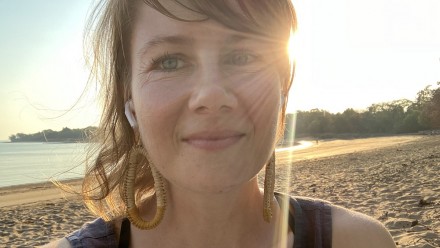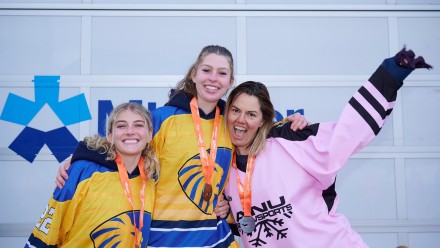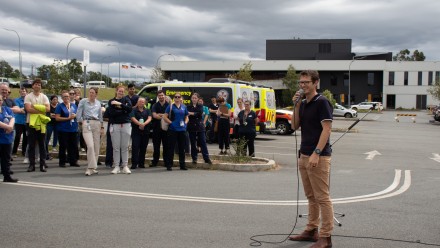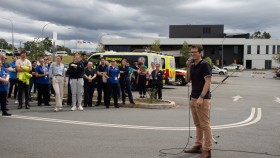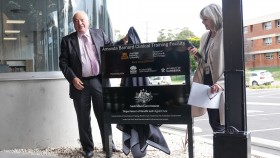The eye of the storm
By Dr Pankti Pandya
It was a windy Tuesday morning that I woke up to. The State was on high alert as we in Gujarat, India, were expecting a cyclone to hit various cities. Heavy rainfalls and winds were expected to cause immense destruction. In anticipation, the hospital had taken precautions- in planning and training emergency evacuation teams, speeding up hospital transfers and discharges, and closing down the field hospital. Inside the hospital building, however, we were facing a different kind of storm. The one we've faced every day since the beginning of the pandemic.
I am Pankti Pandya, an intern in Shree Krishna Hospital affiliated with the Pramukhswami Medical College. I watched quietly from the gallery as the storm outside raged. Trees were flailing wildly, strong winds created gusts of debris, and the rain fell noisily on the pavement. Inside, only silence prevailed. People walked by silently in PPE kits, patients struggled for breath in our COVID wards.
I thought about the lady I had met the day before - her hands joined in prayer, tears in her eyes. Her husband needed an injection that was difficult to obtain, and she lived far from the hospital and yet, she'd promised she'd get it somehow, if we promised to save him. I wondered how she'd ever make it in this storm.
Then there was the young man who had wheeled in the day before. The storm, the distance and perhaps denial, had delayed his arrival to the hospital. What had initially been mild fever had progressed to breathlessness within a matter of days. He was gasping for breath when he presented to the hospital. He was hyperventilating in panic, which made his saturation worse even on 6 litres of oxygen through a face mask. We’d had to calm him down, before his oxygen levels improved. I wondered about the storm inside his body. His own antibodies attacking his cells, his lungs damaged in the crossfire, tethered; I wondered with that degree of involvement, if he'd ever live to breathe on his own, without oxygen support.
The eye of the storm hit us at noon. We were advised to stay indoors. We took our lunch plates to our cabins, and ate our meals in half drenched scrubs. And then waited out the storm with our patients in the wards.
Despite the weather, wives and husbands, fathers and mothers, sons and daughters came. Wore PPE kits for a glimpse of their loved ones. For life giving medications, for questions, for advice. Falling trees are no longer a hurdle when your life is falling apart.
The lady from the previous day showed up. Her blind faith in our promise may have helped.
The young man's lungs gave in. I clasped a mask tightly against his face, as senior doctors revived him - we refused to give up. His wife reminded him of all the things and the people he had to live for- for her, for their kids, for their family. We let her stay- some storms are better weathered when you have your loved ones around you. Her voice meant home, her eyes meant hope and her presence brought comfort in a lonely place. For a moment, I felt the Eye right there in the critical care ward - a tube down his throat, as he was intubated, his wife still whispering words of comfort.
I wondered how many of us would make it through the pandemic – we had lost so many people to the virus. But more so, if I would see this patient again the next morning.
It was eight pm when I finally finished my shift. The storm had significantly calmed down outside. Having not had left the building in twelve hours, I didn’t know what to expect. I wore my raincoat and headed outside to the sweet petrichor that the rain had left in it's wake, fallen trees blocking the road leading home. I navigated an alternative route to get home. It had been a long day.
I talked to my loved ones, felt immensely grateful that everyone had waited out the storm and were doing okay. I silently prayed for the couple I'd left, as sleep washed over me.
It was a sunny morning when I returned to the ward. On my last shift, I saw him again- this time he was drowsy, but not intubated any more - I could palpate his pulse and see his chest rise and fall. He'd made it through the storm, as had the rest of us.
The storm had abated. Both outside…and inside – for this patient.
But there were hundreds, thousands more patients out there – each braving their individual storms. Caught between that moment between life and death, when nothing else matters. Only hope- that they live to see another day. That they live.





